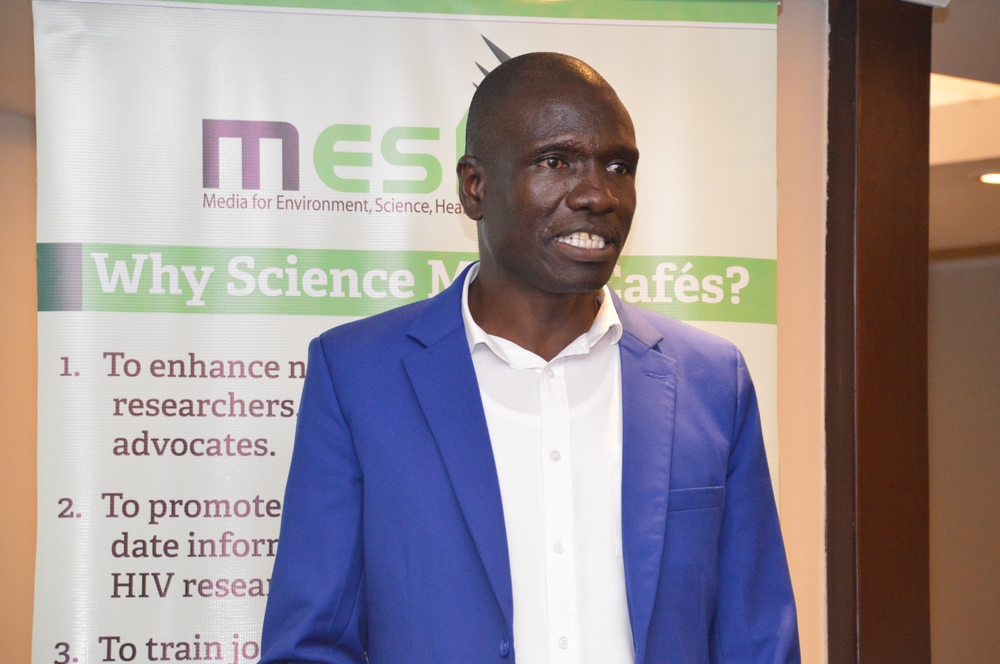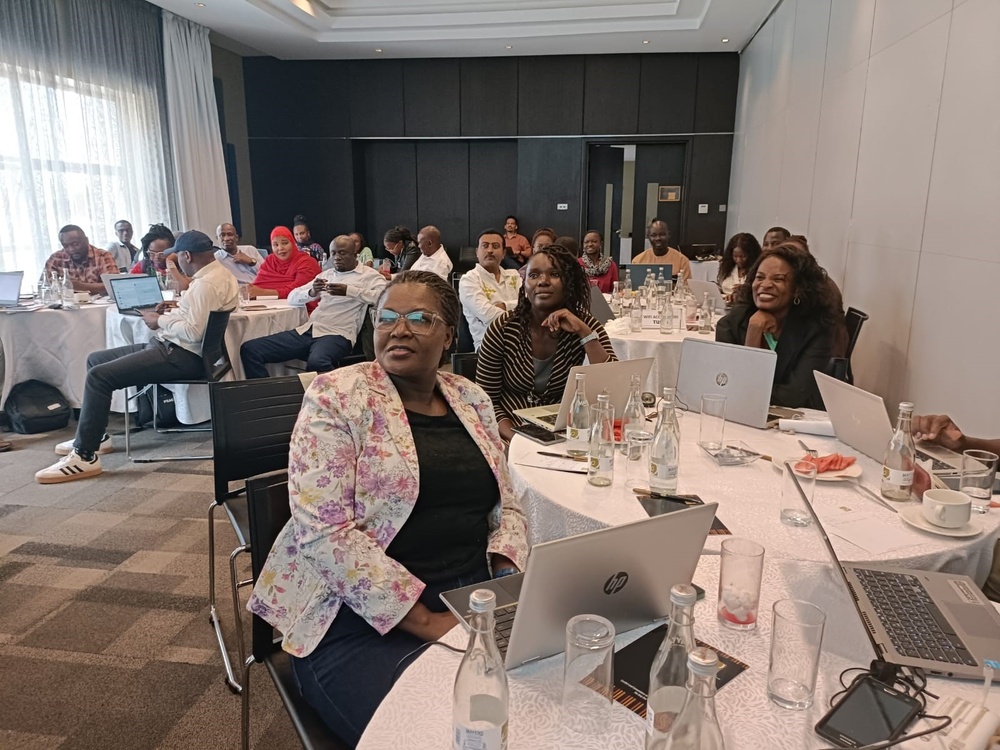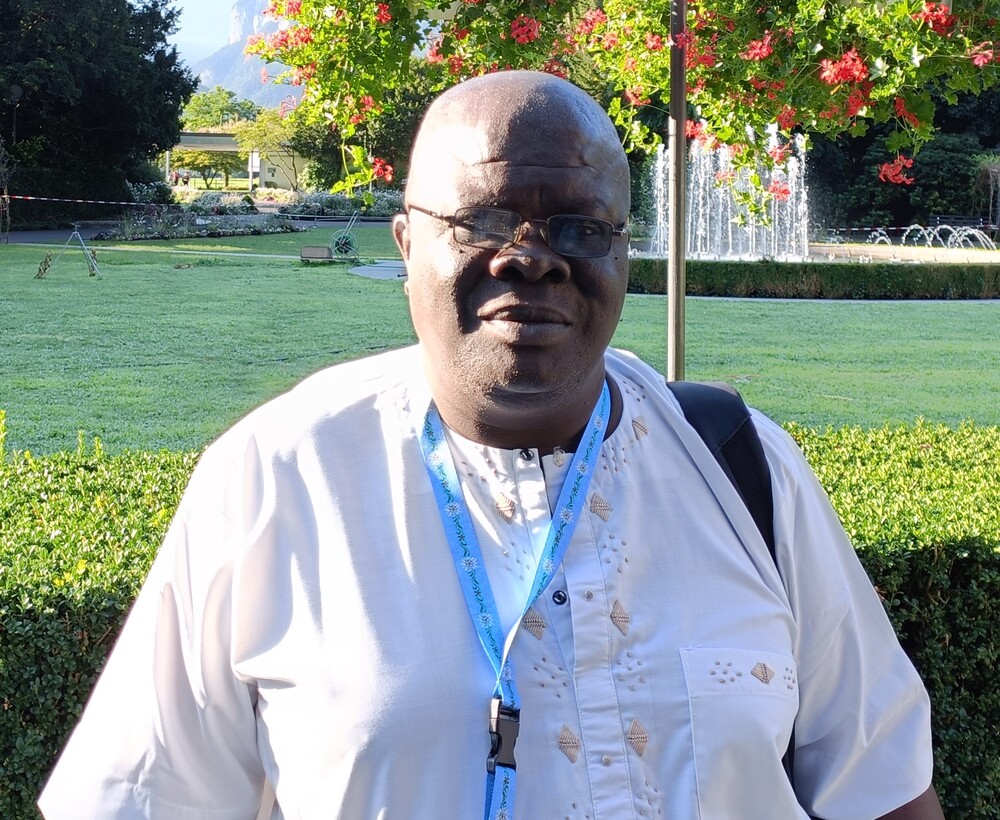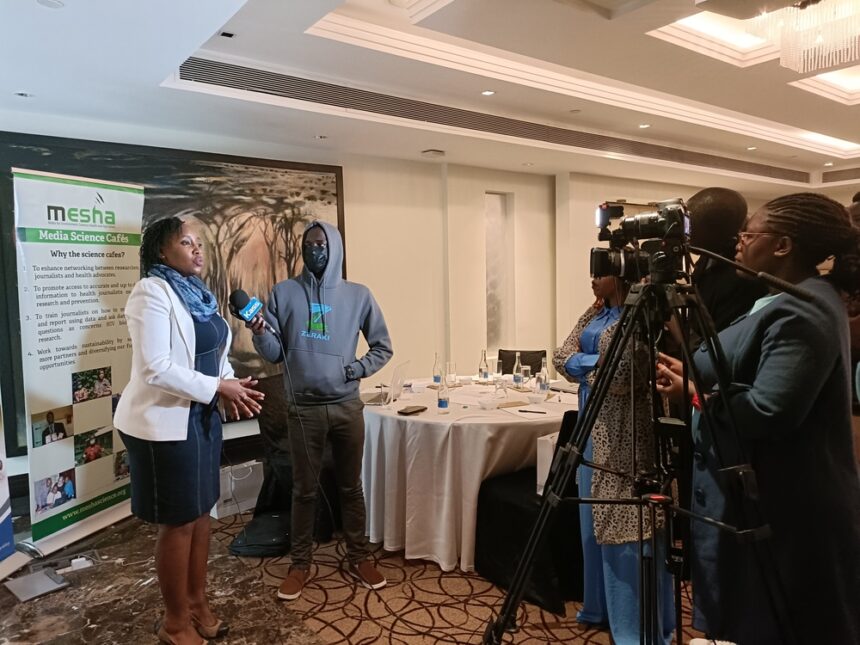By Christine Ochogo | christawine@yahoo.com
Demand for health reporting is growing rapidly with the changing human lifestyle and rising cases of pandemics and epidemics globally, communication experts have said.
Media for Environment, Science, Health and Agriculture (MESHA) Secretary Aghan Daniel has therefore challenged journalists to keep up with the demand by being consistent and sustainable in covering health research.
Mr Aghan says the public relies on science writers who must mine information from various health research studies and package them in a simple and easy to understand language for the good of audiences.
He says that currently more people are concerned about their health, they appreciate and consume health stories as it touches on their lives and wellbeing. He adds that journalists need to embrace science and health reporting so as to highlight the day-to-day health issues affecting communities.

Addressing journalists during a MESHA journalists training on reporting research, Aghan mentioned the reality in daily work for journalists, saying the news rooms spaces are shrinking but the need for health reporting is increasing and therefore the need must be met by having more science journalists who can pass the complex researches from experts for public good.
“Since people appreciate matters health, reporting on its research helps communities to understand the technical aspects of these findings thus making informed decisions and being cautious of their health. This can only happen if science journalists relay correct, timely and simplified information,” said Aghan.
“Make use of lessons from solutions journalism, mobile journalism, data journalism and others to relay information, gone are the days when the medium for communication was limited,” he added.
Idah Jooste, Internews media trainer, advised on the importance for science writers to understand and interpret the technical terms used in health research finding and papers to effectively communicate to members of the public.

“Simplify the jargons, phrases and use relatable language that is friendly and easily understood, imagine that you are writing for a 12 year old child,” Jooste emphasised.
Hezron Ochiel, Deputy Corporate Communications Manager at Kenya Medical Training Institute (KMTC), shared the same line of thought adding that reporting research has great potential to impact lives of people in a community if the motive of the study is right.
Ochiel who is still a practicing journalist emphasised that when mining stories from research findings, science journalists must try to relate the figures being talked about with real life situations that members of the public can easily relate with.
“Simplified per centages, use of infographics, use of absolute numbers and comparisons of figures to physical examples also help in simplifying reports for better understanding,” Ochiel pointed out.
Ochiel quoted that research defines our daily lives and having knowledge on how best to report on research studies contributes to enhancing credibility of health reporting, building public trust in media and science, it helps to identify and combat misinformation thus saving lives.

He mentioned the importance of looking at the research abstract and findings to understand the motive of the study. Interviewing lead researchers, victims, survivors, government authorities, participants, research critics, Civil Society Organisations so as to connect you to case studies and help us break jargons.
“Research influence policy decision in government and stakeholders and also essential in opening finance opportunities, encourage health behavior and restore confidence in research work,” Ochiel stated.
The three communication experts, Aghan, Jooste and Ochiel together stated that research also benefits journalists in one way or the other as they get to interact with scientists and experts thereby adding value to their career progress and add on knowledge.
Science journalism serves as a major route by which sometimes-complex scientific issues are communicated to a broad audience. The field typically involves interactions between scientists, journalists and the public.









